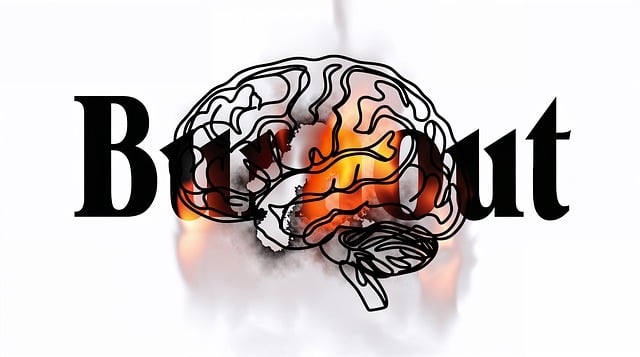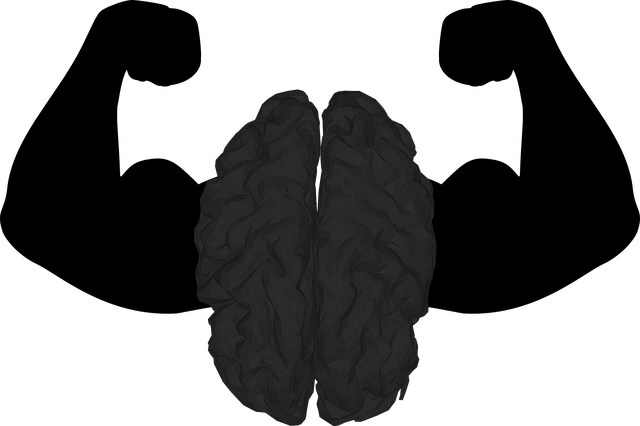In today's fast-paced world, mental wellness is a crucial aspect of overall health, especially in communities like Northglenn where stress management therapy demands are rising. Northglenn Stress Management Therapy (NSMT) offers an innovative solution with its evidence-based self-assessment tools that fill a significant gap. These tools help individuals monitor and manage their emotional well-being, identify early mental health issues, and guide personalized interventions through data insights. Combining concepts like emotional intelligence and confidence boosting techniques, NSMT fosters mental wellness across domains, aids in Mental Health Policy Advocacy, and equips people to recognize and address stress-related problems early on. Effective self-assessment tools should be comprehensive, user-friendly, accessible, and utilize a mix of quantitative surveys and qualitative questions, as demonstrated by NSMT's successful approach. The therapy's strategic implementation, rigorous testing, and continuous improvement ensure its relevance in promoting mental wellness through comprehensive assessments, public awareness campaigns, and resource integration for both users and healthcare providers.
Mental wellness self-assessment tools play a pivotal role in individualized care, empowering individuals to take charge of their mental health. This article explores the development of such tools with a focus on the contributions of Northglenn Stress Management Therapy. We delve into the need for accessible, effective assessments, highlighting key components and best practices. Through examining the process and methods employed by Northglenn, we offer insights into creating comprehensive tools that facilitate implementation, testing, and continuous improvement, fostering better mental wellness outcomes.
- Understanding the Need for Self-Assessment Tools in Mental Health
- The Role of Northglenn Stress Management Therapy in Development
- Key Components of an Effective Mental Wellness Self-Assessment Tool
- Process and Methods for Creating Comprehensive Assessment Tools
- Implementation, Testing, and Continuous Improvement Strategies
Understanding the Need for Self-Assessment Tools in Mental Health

In today’s fast-paced world, mental wellness is a cornerstone of overall health and well-being, especially in communities like Northglenn where stress management therapy is increasingly sought after. However, assessing one’s mental state can be complex, often requiring professional evaluations that might not be readily accessible or affordable for everyone. This is where self-assessment tools play a pivotal role. They democratize mental health care by empowering individuals to take an active role in monitoring and managing their emotional well-being.
Self-assessment tools are invaluable for identifying early signs of mental health issues, tracking progress over time, and providing data-driven insights to guide personalized interventions. Moreover, these tools can serve as a foundation for Mental Health Education Programs Design, helping individuals develop coping strategies and build resilience. By integrating concepts like emotional intelligence and confidence boosting techniques, self-assessment tools become dynamic resources that promote mental wellness across various life domains.
The Role of Northglenn Stress Management Therapy in Development

The Northglenn Stress Management Therapy (NSMT) plays a pivotal role in the development of mental wellness self-assessment tools. By focusing on evidence-based stress reduction methods, NSMT offers valuable insights into individual and collective coping strategies. This therapy not only enhances public awareness campaigns development by highlighting effective practices but also informs Mental Health Policy Analysis and Advocacy efforts. Through its comprehensive approach, NSMT contributes to the creation of tailored interventions that address prevalent mental health concerns within communities.
By fostering a deeper understanding of stress dynamics, NSMT empowers individuals to take charge of their mental wellness proactively. This proactive mindset is crucial in mitigating the impact of stress-related issues and promoting overall well-being. Incorporating NSMT’s principles into self-assessment tools can help individuals recognize early warning signs, adopt healthier coping mechanisms, and access appropriate resources, ultimately leading to better mental health outcomes.
Key Components of an Effective Mental Wellness Self-Assessment Tool

An effective mental wellness self-assessment tool should incorporate several key components to ensure it provides accurate insights and guidance. Firstly, it must be comprehensive, covering various aspects of mental health such as stress levels, emotional well-being, and coping mechanisms. Northglenn Stress Management Therapy has found success in utilizing tools that assess these factors through a mix of quantitative surveys and qualitative questions, allowing for a more nuanced understanding of an individual’s mental wellness.
Additionally, the tool should be user-friendly, ensuring individuals from diverse backgrounds can easily navigate it. Crisis Intervention Guidance is enhanced when self-assessment tools are designed with accessibility in mind. Incorporating features like clear instructions, simple language, and possibly multimedia elements can cater to different learning styles and literacy levels. For instance, a Mental Wellness Podcast Series Production could offer audio versions alongside written assessments to reach a broader audience.
Process and Methods for Creating Comprehensive Assessment Tools

Developing comprehensive mental wellness self-assessment tools requires a meticulous process and diverse methods to capture the nuanced aspects of an individual’s mental health journey. At Northglenn Stress Management Therapy, we understand that each person’s experience is unique, thus, our approach involves a combination of quantitative and qualitative assessments. This includes structured questionnaires designed to gauge symptoms, feelings, and behaviors over time, alongside semi-structured interviews allowing for in-depth exploration of personal experiences and perspectives.
By integrating these methods, we aim to create tools that not only assess current mental health status but also predict potential risks or strengths, akin to a Risk Assessment for Mental Health Professionals. Furthermore, the Public Awareness Campaigns Development can draw from these assessments to create engaging, informative content that promotes positive thinking and fosters open conversations about mental wellness.
Implementation, Testing, and Continuous Improvement Strategies

The development of a robust mental wellness self-assessment tool requires careful implementation and testing strategies to ensure its effectiveness and accuracy. Once launched, ongoing monitoring and continuous improvement are vital for maintaining the tool’s relevance and utility. Northglenn Stress Management Therapy can facilitate this process by collecting user feedback, conducting periodic reviews, and integrating new research findings. This iterative approach allows for adjustments based on real-world usage data, ensuring the tool aligns with evolving mental health standards and best practices.
Testing involves diverse methodologies to capture a wide range of user experiences and needs. Pilot testing with a varied group can provide insights into cultural competency aspects, especially when tailored for specific communities. Incorporating Emotional Well-being Promotion Techniques and Social Skills Training in these trials can help identify areas for enhancement, ensuring the tool promotes holistic mental wellness. Regular updates based on this feedback loop maintain the tool’s efficiency, making it a valuable asset to both individuals seeking self-assessment and healthcare providers requiring evidence-based resources.
The development of mental wellness self-assessment tools is a vital step forward in empowering individuals to take charge of their mental health. As highlighted by Northglenn Stress Management Therapy, integrating user-friendly and comprehensive assessment methods can significantly impact the accessibility of mental health support. By combining evidence-based practices with innovative technology, these tools offer a personalized approach to self-care. The key lies in striking a balance between accuracy and simplicity, ensuring that individuals from all walks of life can access and benefit from effective mental wellness assessments. Continuous improvement through user feedback and research ensures these tools remain adaptable and relevant in meeting the evolving needs of those seeking mental health guidance.











